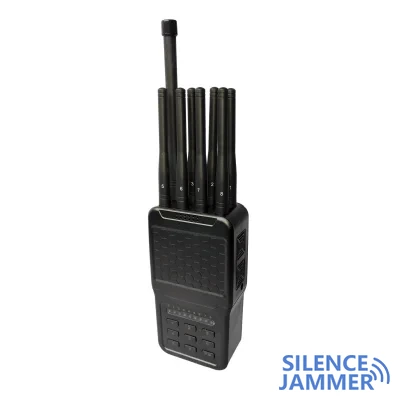In modern society, WiFi signal jammers (or WiFi jammers) have gradually become a device of concern. Such devices can interfere with and block wireless network signals, making it impossible for nearby WiFi devices to connect to the Internet normally. Although some people may use WiFi signal jammers for privacy or security reasons, their potential negative effects cannot be ignored, especially the potential harm to emergency services communications.

The criticality of emergency service communications
Emergency services (such as police, fire, and emergency medical services) rely on a variety of communication methods to ensure efficient response and coordination. Among them, although dedicated radio systems (such as police radios, fire communication systems, etc.) are the main means, modern emergency services are also increasingly relying on the Internet and wireless networks for communication and data transmission. For example, an ambulance may transmit a patient's real-time health data to a hospital via a WiFi network, and the fire department may use a map application on a tablet to navigate to the scene of a fire.
Potential impact of WiFi jammers on emergency services
Although dedicated emergency service radio systems do not usually operate on the WiFi band, WiFi signal jammers will not directly interfere with these systems, but the indirect impact still exists and is very serious. Here are some specific impact scenarios:
- Hospital and emergency vehicle communications: Modern medical emergency systems rely on WiFi for real-time data transmission. If WiFi used in hospitals or ambulances is interfered with, it may cause interruptions in patient data transmission, delay diagnosis and treatment, and endanger patients' lives.
- Real-time information sharing for fire and police departments: Firefighters and police officers may rely on WiFi networks to obtain real-time maps, building structure information, and other critical data on the scene. If this information cannot be obtained in a timely manner, it may affect the efficiency and safety of rescue and law enforcement.
- Public alarm systems: Many modern alarm systems connect to monitoring centers through WiFi networks to transmit information about emergency events. If jammers cause these systems to fail, emergency response may be delayed.
- Interruption of public WiFi networks: Many public places (such as shopping malls, stations, etc.) provide WiFi services for use in emergencies. If these networks are interfered with, it may result in the inability to use the network to report an emergency or obtain emergency information.

In the United States, the Federal Communications Commission (FCC) has clearly stated that it is illegal to manufacture, sell, and use WiFi jammers. These devices not only interfere with the communications of ordinary citizens, but also pose a serious threat to public safety. Therefore, although some people may think that using WiFi jammers is to protect personal privacy or prevent network abuse, the legal and ethical risks are obvious.
To avoid the impact of WiFi jammers on emergency service communications, the following measures can be taken:
- Strengthen law enforcement: Ensure that regulatory agencies such as the FCC strictly enforce the law to prohibit the manufacture, sale and use of jammers.
- Public education: Raise public awareness of the dangers of WiFi jammers, especially their potential impact on emergency service communications.
- Technical protection: Develop and deploy technologies that can detect and locate jammers, and take timely measures to eliminate interference.
- Multi-layered communication systems: Emergency services should use multiple communication methods to ensure that they can still maintain contact and coordination when any one system fails.
Conclusion
While WiFi signal jammers may be considered a tool to protect privacy or prevent network abuse in some cases, their potential impact on emergency service communications is huge. In any case, the use of such devices is illegal and irresponsible. For the sake of public safety and personal well-being, the use of WiFi jammers must be strictly prohibited and effective measures must be taken to protect the communication systems of emergency services.


